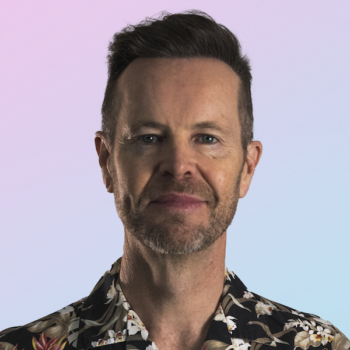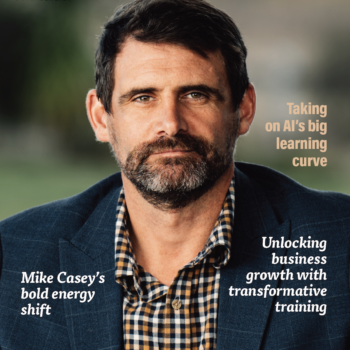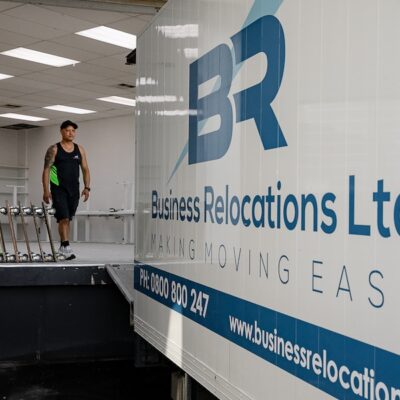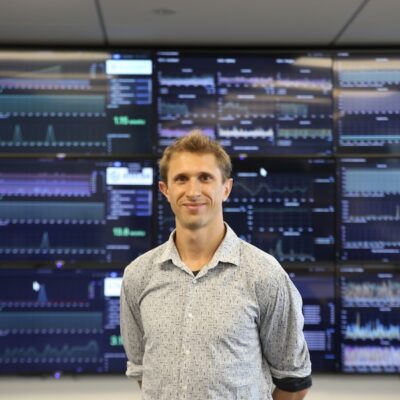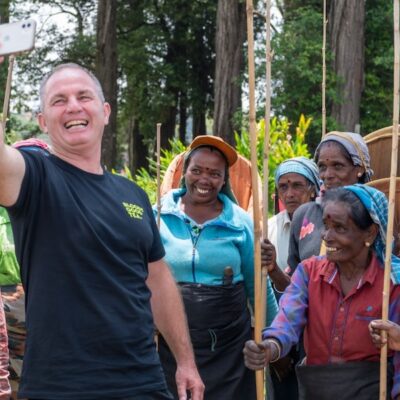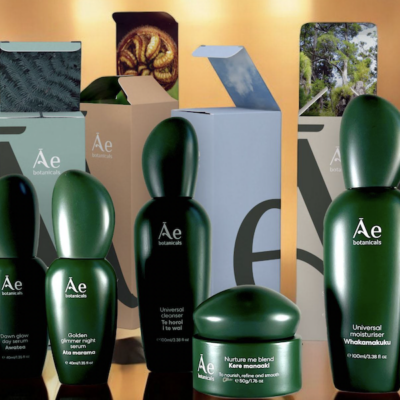Innovating waste: Inside Phoenix Recycling’s bold transformation
Phoenix Recycling Group has undergone a significant business transformation in the past five years, evolving from a metal recycling business into a leader in New Zealand’s circular economy. This shift, built on diversification and accessibility, is inspiring change in the recycling industry and how Kiwis view sustainability.
Executive Director at Phoenix Recycling, Hilary West-Reeve, has been a driving force behind this growth. In an interview with NZBusiness, she shares the creative strategies that spurred on the transformation, how she and her team elevated brand awareness and why strategy is critical in the boardroom.
A new chapter
Founded in 2008 by Eldon Reeve, Phoenix has now entered an exciting new phase under the leadership of CEO Phil Hand in September this year following a successful business transformation between 2021-2024.
With a strong manufacturing background, Phil is poised to lead the next growth stage, while Eldon and Hilary still remain actively involved as 50 percent shareholders alongside their partner ForthCo, transitioning into fractional executive roles whilst continuing on the board.
Reflecting on the past five years, Hilary has been heavily involved in Phoenix’s rebranding journey. Originally named Phoenix Metal Recyclers, then became Phoenix Metalman Recycling, the company has now transitioned to Phoenix Recycling Group to better reflect its expanded offering.
Today, Phoenix handles all metals, all battery types, e-waste and solar panels for recycling. Phoenix’s de-construction and energy de-commissioning services also recover glass, used transformer oil, concrete plastics, porcelain and other materials which are recycled with partners locally.
Respecting the legacy of acquired businesses was key to the rebranding effort.
“You can’t just take over and change all the signs – being considerate of the legacy created from the founding owners was extremely important.” says Hilary.
Instead, Phoenix allowed businesses to gradually integrate into the brand, building trust and ensuring smoother transitions. In just three years from the initial brand transition, Phoenix grew from six to 19 sites across New Zealand.
This expansion included acquisitions of established recycling businesses, greenfield sites, and companies specialising in e-waste and batteries nationwide.
Hilary says that integrating these businesses into one cohesive group wasn’t without challenges. “We had a lot of those businesses in the South Island, and they had no data connection – no internet. All paper-based, no Microsoft Word,” Hilary says.
Behind the scenes, the transition involved substantial system changes and operational synergies to be created within the supply chain.
“New Zealand has challenges when it comes to recycling; it’s terrain, and position relative to the rest of the world create complex servicing gaps which Phoenix is genuinely creating solutions for with its network reach” Hilary says.
As well as an international supply chain, the logistics around the country proved to be challenging, too. In urban centres such as Auckland, recycling collection routes are relatively straightforward, with high population densities making it easier to collect recycled materials efficiently. However, the situation is very different in remote areas.
“Our team in the South Island will be travelling thousands of kilometres a day, versus short trips across Auckland,” Hilary says.
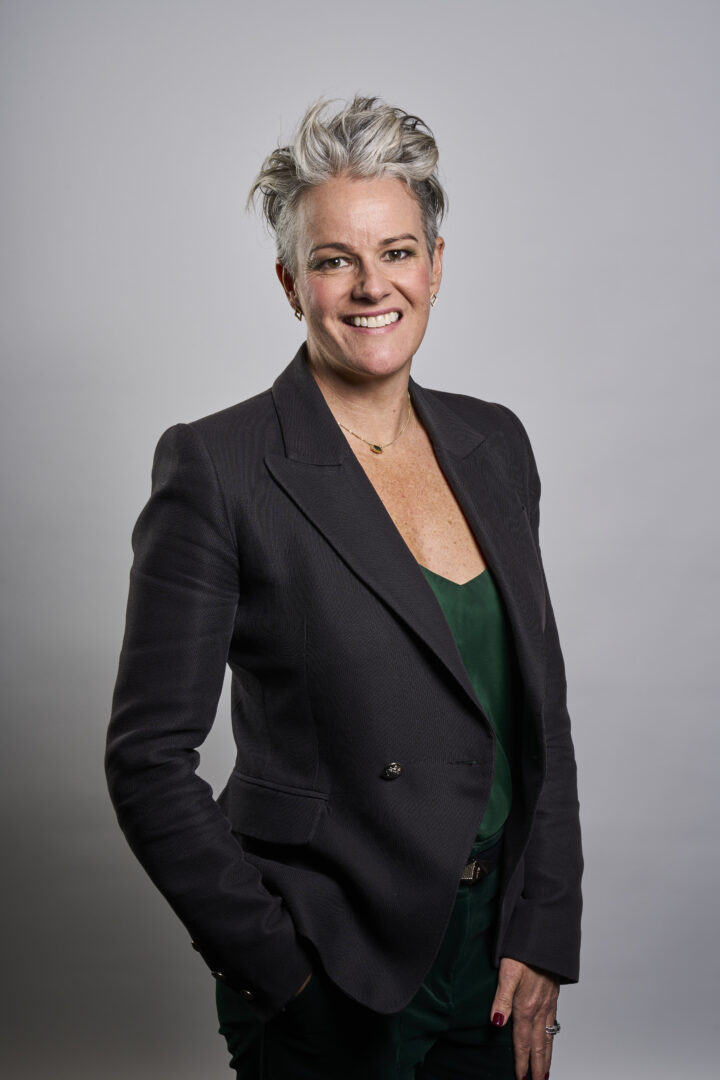
Creativity nurtures strategy
Before joining Phoenix, Hilary spent 30 years in architecture, working on many sustainability-focused construction projects. As a New Zealand Green Building Council board member, sustainability has long been part of her professional ethos.
“My previous creative career brought objectivity,” she says.
Bringing this mindset to Phoenix, Hilary disrupted traditional perceptions of recycling in New Zealand, infusing the company with fresh ideas.
“This industry has for a long time just been doing its thing: recycling metals, but without an effective voice within New Zealand. I came in and went: ‘Wow, there’s so many things we could communicate to tell our story and to showcase the positive contribution to society this industry creates,'” she recalls.
Her approach to sustainability leadership, marketing and communications transformed Phoenix’s voice and how it communicates its mission, making recycling engaging and appealing to everyday consumers, empowering them to recycle smaller items like batteries.
Phoenix is not only innovating its operations but also revolutionising the workforce. Traditionally seen as a blue-collar industry, recycling often lacked clear career pathways. Phoenix has looked to change that.
“How do you give recycling and resource recovery a level of importance?” Hilary asks.
Through collaborating with government agencies like Hanga Aro Rau (Manufacturing, Engineering, Logistics Workforce Development Council) Phoenix are key stakeholders within the working group developing resource recovery qualification pathways, enabling employees to progress through certification levels.
The company also embraces second-chance employment, hiring individuals who have faced barriers to traditional job markets. This approach ensures Phoenix’s social impact matches its environmental ambitions.
Phoenix is also striving to demystify recycling by showing Kiwis where their materials go. They recycle products across 14 countries, primarily in Asia but as far afield as Belgium. Hilary says transparency is key to engaging the community of the downstream markets using our processed recycled materials into new products we use every day like smartphones.
“People find it hard to relate if they can’t translate the action. So, it’s been important for us to communicate what that action feels like,” she explains.
By educating consumers, Phoenix fosters greater participation in the circular economy. “We want everyone to feel like they can recycle something they’ve got.”
Driving future innovation
As the industry evolves, so too must the methods and technologies that underpin it. Recognising the pressing need to address often overlooked waste streams, Phoenix is turning its focus toward materials that are difficult to process, such as mixed-material-construction debris.
“We’re looking at a lot of construction materials that we know are going to landfill but have got a lick of metal in them,” Hilary explains.
Phoenix collaborates and advises to enable the exploration of advanced separation techniques and new technologies that can extract reusable materials efficiently and sustainably. A significant milestone for future work streams in this endeavour is their new site in Onehunga, Auckland which officially opens for business in early 2025. As a voluntary carbon reporting entity with Toitū Envirocare, Phoenix are looking forward to creating a central Auckland hub to enable further efficiencies in their supply chain to reduce their emissions and work with Toitū more closely to develop emissions factors for the circular economy of recycled metals like steel, copper, aluminium; to name a few.
This facility, will be a hub for advocacy, engagement and innovation, enabling the company to test and refine processes for recovering materials from complex waste streams.
By integrating research and operational activities, the site will have specific infrastructure and specialist teams working to highlight the recycling processing value chain of the products and materials Phoenix manages.
Phoenix’s continued growth has highlighted the need for a dedicated Marketing and Communications team, which now oversees daily operational activities. This shift allows Hilary to step back from the day-to-day tasks and focus her efforts on strategic projects.
“When you get the opportunity to step out, you get to work on the business strategically, to add value to the bigger picture. I became operationally extremely busy in the business for a while doing many things. Now I will have time to really focus in,” she explains.
“It’s an exciting time for Phoenix and sustainability as a whole, and we’re looking forward to driving impactful initiatives that shape a more sustainable future.”


